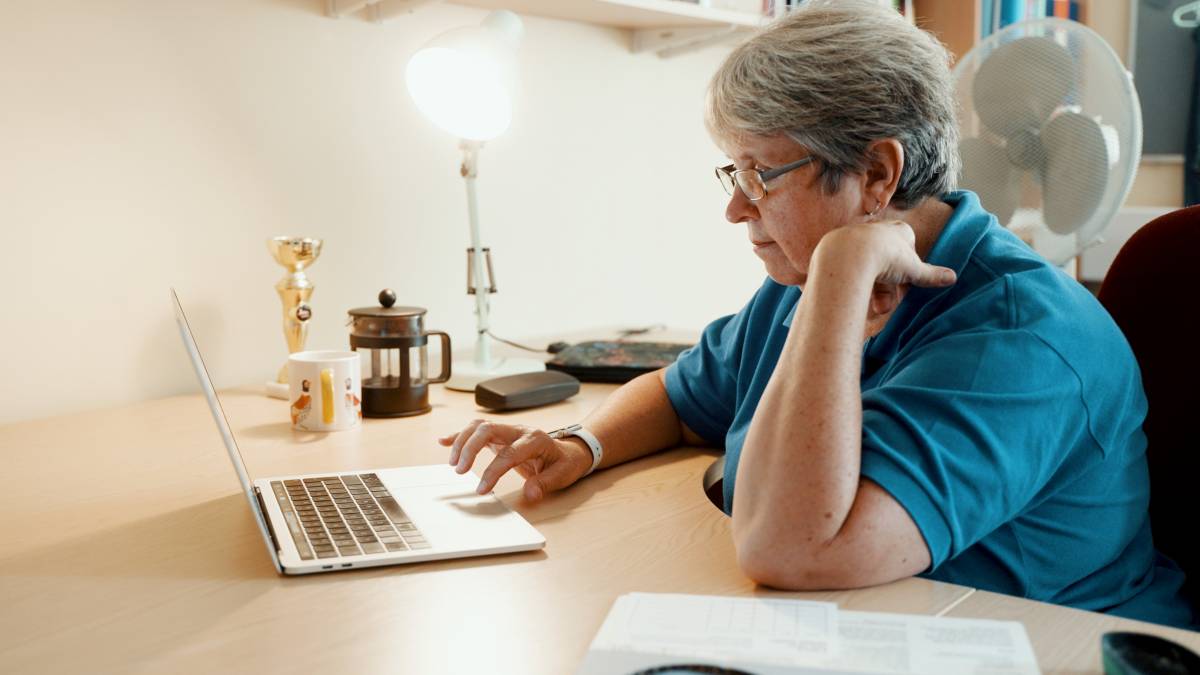'First of its kind' resource guides physios on conducting remote assessments with patients
Plymouth-based academic Jenny Freeman hopes that physiotherapists around the UK will make the most of Telerehab, a free online resource that aims to help practitioners assess patients’ movement impairments using video conferencing or telephone technology.
Telerehab, which was developed with funding from the National Institute for Health Research and the Medical Research Council, enables practitioners to conduct remote assessments with patients with long-term conditions such as Parkinson’s, multiple sclerosis (MS), as well as those recovering from Covid-19 infections.

Less 'hassle and stress'
Jenny Freeman, who is Telerehab’s project lead and professor of physiotherapy and rehabilitation at the University of Plymouth, said: ‘This toolkit isn’t taking away from the fact that there will be some appointments that still need to be done in person, such as complex physical assessments or communicating difficult news.
‘But many consultations, such as simple follow-ups about treatment plans or reviews of home-based adaptions, can be done remotely, meaning less hassle and stress for the patient as they don’t have to travel, and a more sustainable approach for the practitioner.
‘The Telerehab toolkit is the first resource of its kind to specifically focus on assessment of movement impairments, and our goal is to ensure that all practitioners – from physiotherapists to dietitians – who work with people with physical disabilities are aware of the benefits it offers. Covid-19 might have catalysed its creation, but technology really can help patients, so it’s important to get remote delivery right both now and in the future.’
The toolkit helps patients find out what they can expect from remote appointments, gives digital skills advice for patients and practitioners, and offers resources to help practitioners decide what assessments can be done remotely and, if so, how to implement them successfully.
The project team conducted literature searches and held discussions with more than 100 clinicians, students, patients and their families, and surveyed the views of 247 health and social care practitioners in the UK.
While initially set up in response to Covid-19, the resource is designed to evolve as the NHS moves towards ‘net zero’, and healthcare delivery becomes more person-centred. Other aims are to improve the way in which the backlog of people needing rehabilitation is managed and to share learning about best practice for telerehabilitation within ‘real-life’ contexts to inform future practice.
Backing from a 'patient partner'
Our goal is to ensure that both practitioners and patients feel empowered to use telerehab if the appointment can be undertaken remotely, and the toolkit can be of great benefit in making this happen [Jenny Freeman]
Barbara Scott, a patient partner on the project who has MS, advised clinicians in the project about her experience of using telerehab. She said: ‘I find the main benefit of remote assessments is that I can focus my energy on the exercises delivered, rather than having to worry about travelling to a hospital, and all the time and stress that can take.
‘I had a video-based physiotherapy consultation with Jenny (Freeman) well before telerehab became the norm, and she was able to help my ankle pain and weakness by delivering advice and exercises via video call. I’m really pleased that the Telerehab toolkit now exists to help more patients benefit from the same experience as me.'
Professor Freeman added: ‘Some people have anecdotally shared with us that they do not want to visit hospitals for in-person appointments for a variety of reasons and would prefer a video-based appointment. Our goal is to ensure that both practitioners and patients feel empowered to use telerehab if the appointment can be undertaken remotely, and the toolkit can be of great benefit in making this happen.'
The project, which has already been the subject of several peer-reviewed papers, has benefited from the expertise of staff based at the University of Plymouth’s Centre for Health Technology and the Plymouth Institute of Health and Care Research.
To access the Telerehab toolkit online, visit: https://www.plymouth.ac.uk/research/telerehab
The partner organisations that contributed to the Telerehab toolkit’s creation are as follows
- University Hospitals Plymouth NHS Trust
- Royal Devon and Exeter NHS Foundation Trust
- Cornwall Partnership NHS Foundation Trust
- Northern Devon Healthcare NHS Trust
- Livewell Southwest Community Hospitals
- Torbay and South Devon NHS Foundation Trust
- Cornwall Council
- Plymouth Community Homes
- University of Southampton
- University of Warwick
Author: Ian A McMillan
Share it with














